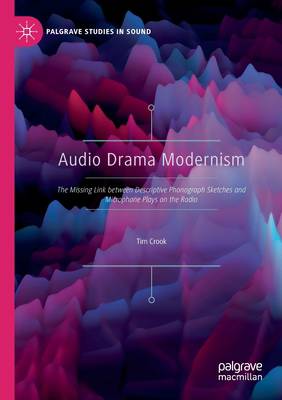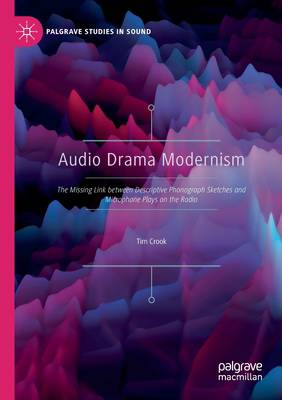
- Afhalen na 1 uur in een winkel met voorraad
- Gratis thuislevering in België vanaf € 30
- Ruim aanbod met 7 miljoen producten
- Afhalen na 1 uur in een winkel met voorraad
- Gratis thuislevering in België vanaf € 30
- Ruim aanbod met 7 miljoen producten
Zoeken
Audio Drama Modernism
The Missing Link Between Descriptive Phonograph Sketches and Microphone Plays on the Radio
Tim Crook
€ 167,95
+ 335 punten
Omschrijving
Audio Drama and Modernism traces the development of political and modernist sound drama during the first 40 years of the 20th Century. It demonstrates how pioneers in the phonograph age made significant, innovative contributions to sound fiction before, during, and after the Great War. In stunning detail, Tim Crook examines prominent British modernist radio writers and auteurs, revealing how they negotiated their agitational contemporaneity against the forces of Institutional containment and dramatic censorship. The book tells the story of key figures such as Russell Hunting, who after being jailed for making 'sound pornography' in the USA, travelled to Britain to pioneer sound comedy and montage in the pre-Radio age; Reginald Berkeley who wrote the first full-length anti-war play for the BBC in 1925; and D.G. Bridson, Olive Shapley and Joan Littlewood who all struggled to give a Marxist voice to the working classes on British radio.
Specificaties
Betrokkenen
- Auteur(s):
- Uitgeverij:
Inhoud
- Aantal bladzijden:
- 339
- Taal:
- Engels
- Reeks:
Eigenschappen
- Productcode (EAN):
- 9789811582431
- Verschijningsdatum:
- 20/11/2021
- Uitvoering:
- Paperback
- Formaat:
- Trade paperback (VS)
- Afmetingen:
- 148 mm x 210 mm
- Gewicht:
- 453 g

Alleen bij Standaard Boekhandel
+ 335 punten op je klantenkaart van Standaard Boekhandel
Beoordelingen
We publiceren alleen reviews die voldoen aan de voorwaarden voor reviews. Bekijk onze voorwaarden voor reviews.











